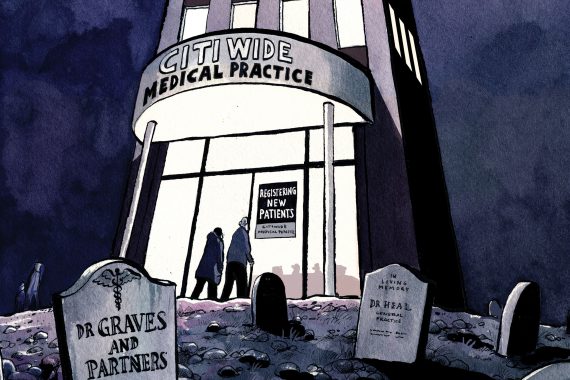One of England’s largest GP federations is contemplating a merger that could create a 540,000-patient mega-partnership.
The Suffolk GP Federation, which currently consists of 58 separate GP partnerships, is looking at ‘different options’ for taking their collaboration forward, including one mega-partnership or several super-partnerships with more than 100,000 patients each.
Its chief executive David Pannell said one option being looked at also includes a model where GPs would become salaried to the new entity or entities.
He said the work, which could potentially create the largest super-practice yet, is being fuelled by a bid to alleviate pressure on individual practices.
He said: ’We are discussing seven different options, which include the formation of super-practices, pursuing a salaried model and practices merging. We have been in discussions for about a year and expect to put out something about the findings of the talks in the next couple of months.
’It’s up to the practices themselves if they want to go forward with the super-partnership option and in what form. There are lots of possible permutations.’
Super-practices have increased in number as GPs look to change their models to cope with increasing pressures on the system.
But the previously two largest super-practices to emerge – both formed last year – were the 275,000-patient Our Health Partnership and the 100,000-patient Lakeside Healthcare.
Mr Pannell said that while the number of super-partnerships was increasing, relatively little was known about how they worked and what benefits they could bring.
He said: ‘Many salaried GPs don’t want to become partners because they don’t want to take on the liability of owning a building. Super-practices can be set up so that GPs can become partners without having to take on building ownership.
‘Super-partnerships can also take on more work which is being pushed out of hospitals and serve entire populations. It’s difficult for GPs to have a voice at the table on policy discussions and the like – super-practices can give them more of a voice.’
It comes as NHS England’s primary care commissioning lead Dr David Geddes announced plans at a conference earlier this month to merge his small York practice with another local service to create a 44,000 patient super-practice.
The Suffolk GP Federation is run as a not-for-profit community interest company and serves 540,000 patients across rural Suffolk and Ipswich.
The rise of the super-practice
Industrial-scale GP services have started to emerge, including the 100,000 patient, 62 partner practice at Lakeside Healthcare and the gigantic Our Health Partnership in Birmingham and Sutton Coldfield, which involves 200 GP partners and a list of 275,000 patients.
Merging of practices into super-practices is a trend unlikely to abate, with it the option being almost universally floated as the holy grail to make GP services sustainable.
The Government has mandated NHS England to ensure half of England’s population is covered by one of the new GP care models by 2020 – typically larger practices providing both primary and secondary care – and the GPC’s blueprint for the future of general practice also focused on working ‘at scale’.
NHS England is also developing the Prime Minister’s new voluntary Multidisciplinary Community Partnership (MCP) GP contract during 2016, to be rolled out for practices with at least 30,000 patients, and delivering seven-day access, from April 2017.
Pulse October survey
Take our July 2025 survey to potentially win £1.000 worth of tokens





 Oviva’s fully remote Tier 3 Weight Management programme
Oviva’s fully remote Tier 3 Weight Management programme







